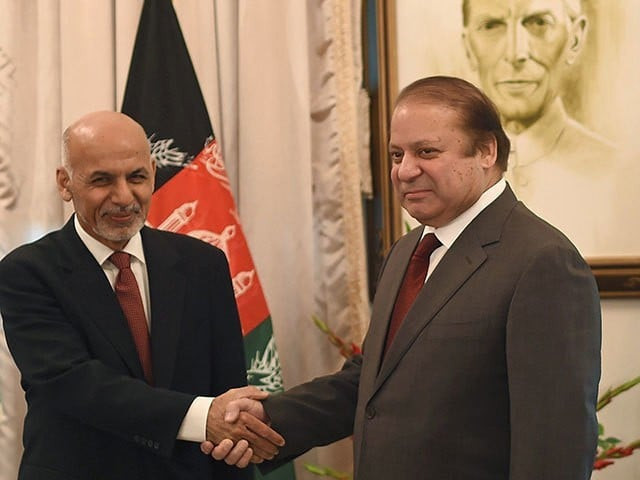Delegates call for normalising Pak-Afghan bilateral ties
Afghanistan had joined India in withdrawing from a SAARC summit on September 28 in Islamabad

Afghanistan had joined India in withdrawing from a SAARC summit on September 28 in Islamabad. PHOTO: AFP
Earlier on September 28, Bangladesh, Afghanistan and Bhutan pulled out of a regional summit of South Asian leaders in Pakistan, a day after India boycotted the event as 18 of its troops were killed in a military base in Srinagar.
“Peace and stability are the priorities of the two nations. Disengagement, therefore, between the two governments is not desirable," a declaration issued on Thursday read. The declaration was issued at the conclusion of a two-day dialogue in Lahore.
"High-level exchanges [between the two countries] should resume in order to promote dialogue at all levels to generate conducive environment for removing mistrust," it maintained.
The first meeting of the second phase of Beyond Boundaries, a Track I.5/II dialogue series, was undertaken by the Center for Research and Security Studies (CRSS) in partnership with Afghan counterpart Women Peace and Security Organisation (WPSO).
Bangladesh, Afghanistan, Bhutan join India in withdrawing from SAARC summit in Pakistan
The series brings together prominent journalists, civil society activists, former diplomats, parliamentarians, academicians, former members of law enforcement and scholars from both countries as part of the Pakistan-Afghanistan Joint Committee (PAJC) for Beyond Boundaries phase II.
The declaration called for the revival of the Quadrilateral Coordination Group (QCG) of Afghanistan, China, Pakistan and the US. It should continue to encourage the Taliban to come to the negotiation table to adhere to well-defined, measurable goals and steps indicating progress.
“Terrorism is a common concern, which continues to affect families on both sides. Effective regulatory framework is needed to check movement of the goods and the people on both sides, beginning with the regulation of existing crossing points, and gradually extending it to other entry and exit points,” it said.
The conference agreed that the media plays a major role in shaping relations and public perceptions with far reaching implications. In this context, both sides supported facilitating exchanges of media persons and formulation of shared code of conduct to regulate media communication. Further, any ban on print or electronic media should be lifted.
The delegates urged both the governments to further simplify visa procedures and regulations for bona fide business people, students, and parliamentarians. “Special counters offering speedy processing should be set up in respective embassies to facilitate visas to medical tourists and disabled persons.”
Returning home: More than 350,000 Afghan refugees return, says UN
The declaration pointed out that both countries should organise cricket matches between national and regional teams. Also, state TV channels, on reciprocity basis, may telecast cultural events regularly.
The Pakistani contingent comprised MNA Shazia Marri, ex-chief of Balochistan Police Dr. Shoaib Suddle, Maj. Gen. (retd) Ejaz Awan, Ambassador Mian Sanaullah and analyst Imtiaz Gul.
The Afghan delegation comprised Sayed Ishaq Gailani, Mozammil Shinwari, Wazhma Frogh, Palwasha Hassan, Ketabullah Khpolwak Sapai, and Elay Ershad. The workshop was chaired by Dr. Rasul Baksh Rais.



















COMMENTS
Comments are moderated and generally will be posted if they are on-topic and not abusive.
For more information, please see our Comments FAQ